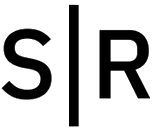Welcome to the April 2025 Share | Updates!
We’re sharing the recent tax and legal changes, to help you stay compliant!
This edition takes you through recent changes in Canada, Czech Republic, France, India, Isle of Man, Japan, Norway, Panama, Poland and UK. We also have some proposed changes in Cyprus and Singapore.
Let’s explore it!
Canada
Confirmation of u-turn on CGT Changes
The proposed changes to capital gains tax introduced in the 2024 budget, which proposed an increase in the inclusion rate for CGT purposes from one-half to two-thirds, were thrown into doubt due to recent government changes in Canada. It has now been confirmed that these proposed changes will be retracted and the legislative change will not be pursued.
The CGT position as it stood before the 2024 budget will continue to apply and the inclusion rate for CGT will remain at 50% (one-half of a capital gain is taxable, a so-called 50% inclusion rate).
Czech Republic
Companies Can Now Elect to Defer Award Taxation
As reported in our January newsletter, the legislation relating to the deferral of taxation of Awards has been formally passed as of 1 April, with retroactive effect from 1 January. By way of a reminder, in 2024 the rules were changes so that taxation of Awards would be deferred. This caused some issues and uncertainties.
The new position is that the default position is that Awards are taxed at the usual time (vest, exercise etc as appropriate) but companies may elect for taxation under the deferral regime. Whether an election to defer is beneficial or not will need to be considered on a company by company basis.
France
Social Security Increased (for Qualified Plans)
The employer social security contribution due for the specific Macron regime is payable at vest at 30% for grants made post March 1st, 2025. Grants made until February 28, 2025 should still benefit from the 20% employer contribution at vest. The Bill introducing the change has been passed but is currently being examined by the Constitutional Council and awaits publication.
India
TCS Threshold is increased
The threshold for TCS (Tax Collected at Source) under the Liberalised Remittance Scheme has increased from INF 700,000 to INR 1,000,000 from 1 April 2025.
Isle of Man
Income Tax Reduction
The maximum rate of income tax is reduced from 22% to 21%, effective from 6 April 2025.
Japan
Lower Unemployment Insurance Rates
As of April 1, 2025, reduced unemployment insurance contribution rates have come into force. Employees now contribute 0.55%, down from the previous rate of 0.6%, while the employer rate has decreased from 0.95% to 0.9%.
There remains uncertainty about whether social security contributions apply—this depends on whether the award is deemed part of the employee’s wage base for social insurance purposes. In cases where social security does apply, recent increases to employer contribution rates should be taken into account.
Norway
Start Up Laws Expanded
The EFTA Surveillance Authority (ESA) has approved expansions to Norway’s option tax scheme for start-up and growth companies, effective from 13 March 2025. Key changes include:
- Maximum employees increased to 150 (previously 50).
- Balance sheet total limit raised to NOK 200 million (previously NOK 80 million).
- Company age limit extended to 12 years (previously 10 years).
These new rules apply to options granted on or after 13 March 2025, allowing more companies to benefit from tax deferrals on options and certain share plans, taxed as capital gains upon sale.
Panama
Gradual Increase in Employer Social Security Contributions
Starting March 18, 2025, Panama implemented a gradual increase in social security contribution for the employer. It rose from 12.25% to 13.25%, with further increases scheduled—reaching 14.25% on March 1, 2027, and 15.25% by March 1, 2029.
The employee contribution rate stays unchanged at 9.7%.
Poland
Poland Eases Reporting Rules for Employee Share Offers
Companies offering shares to employees in Poland under Employee Stock Purchase Plans (ESPPs) may now benefit from simplified reporting obligations, thanks to recent changes by the Polish Financial Supervision Authority (PFSA).
Under EU rules, offering shares to more than 150 employees is typically considered a public offering, requiring a detailed prospectus. However, many companies use the Employee Share Scheme (ESS) Exemption, which allows them to avoid the full prospectus requirements if the offer is made only to current or former employees and accompanied by a short disclosure document.
Previously, Polish regulations added an extra step: companies were required to submit a pre-offer report to the PFSA at least seven working days before making the offer. This requirement has been removed.
Now, while pre-offer reports are no longer needed, companies must still submit a post-offer report to the PFSA after making an offer under the ESS Exemption. This change reduces the administrative burden while maintaining regulatory oversight.
The update provides greater flexibility for companies issuing employee shares, aligning Poland more closely with broader EU practices.
UK
Increase in Employers National Insurance Contributions
With effect from 6 April 2025, the maximum rate of employer National Insurance has increased to 15%.
ERS returns window open
The HMRC ERS annual returns are now due and must be filed by 6th July. Please make sure you use the most recent templates available from HMRC for your returns.
Changes on the Horizon*
Cyprus
Tax Reform Proposal
The Cypriot government has announced a series of tax reforms aimed at modernising the tax system. In respect of employee share plans, a new framework is being proposed for a lower tax rate on benefits received, which are currently taxed at normal rates as a benefit in kind. The tax reform is subject to further development during 2025, and is expected to take effect from the 2026 tax year onwards.
Singapore
Proposal to Allow Tax Deduction for New Share Issuances
In Budget 2025, Singapore announced a new corporate tax deduction for payments made to a holding company or special purpose vehicle (SPV) for the issuance of new shares under Employee Equity-Based Remuneration (EEBR) schemes. This brings Singapore’s tax treatment of equity-based remuneration more in line with international practices.
Currently, deductions are only allowed when treasury or previously issued shares are transferred to employees. Under the upcoming changes, the deductible amount would be the lower of:
- The amount paid by the company; or
- The fair market value (or net asset value, if FMV is unavailable) of the shares at the time they are applied for the employee’s benefit, less any amount paid by the employee for the shares.
The change is scheduled to take effect from the Year of Assessment (YA) 2026, with further guidance from the Inland Revenue Authority of Singapore (IRAS) expected by Q3 2025.
The measure remains subject to parliamentary debate and final legislative approval.
* Refer to our previous Share | Updates to see more changes expected on the horizon!



